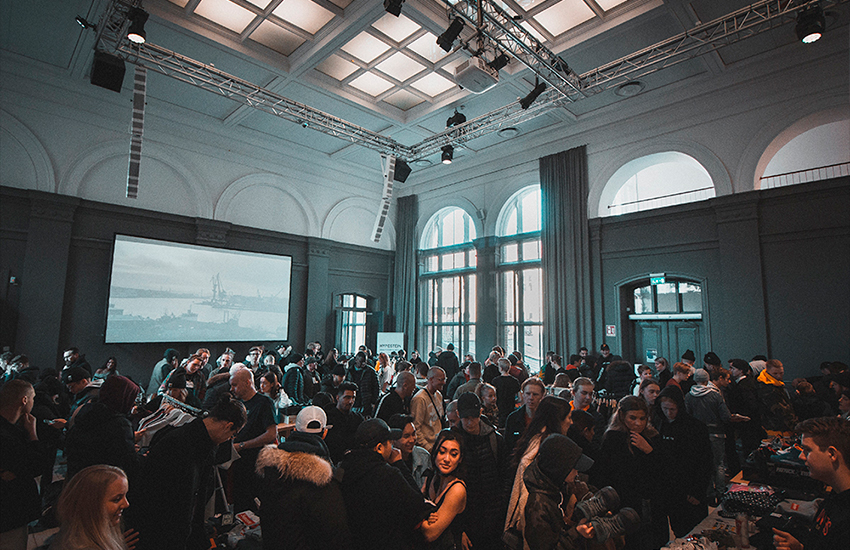Farming can be a thankless task. At the moment, the grass isnt growing, the days are long, and youre cold and muddy more often than youre not. Throw in the challenges of a global pandemic and its enough to make you consider your sanity as youre smashing apart the early morning ice on the animals troughs.
My husband Ludo and I swapped London for rural Monmouthshire back in 2007, moving to a small, four acre, holding. For me, it was like teleporting back to my childhood. Id grown up in the countryside, next to a farm, and spent my youth mucking out stables. Id struggled with city living for a number of years so moving back to the country felt like going home.
When we took on a farm we were keen to take more responsibility for the food we ate. We started, like a lot of people, with some chickens adding geese, ducks, and a couple of pigs along the way. Then, in 2009, I was involved with a series called Lambing Life, finding myself apprenticed to a farming family as a trainee shepherd for nine months. I absolutely loved it. Jim and Kate, who owned the farm, were the best teachers, showing me what it took to get into proper farming as opposed to keeping a few hens. It was that experience that made me keen to start breeding sheep too.
We became aware of an old council farm that was about to be split up. It was an old traditional council farm, maintained by one family for three generations, and it seemed devastating that this farms legacy would end like this. We approached the council, desperate to stop it being broken up. We were convinced it could not only be run viably in the form it was, but that we could integrate a rural skills centre, helping pass on an understanding of how food is produced, of how food ends up on the shelves and how a farm works. It felt amazing that the legacy of this small farm would be passed on to people, like me, who didnt necessarily come from a farming background.
Read more
Of course, the pandemic has been especially challenging for the farming industry. The day-to-day jobs that need doing on a farm cant be stopped or postponed. If youre looking after livestock, or growing things you cant just halt that process. You have a responsibility to see it through, regardless of the world around you. You cant furlough a dairy cow!
Even now, as a nation, were perhaps guilty of taking our farmers for granted. Weve become disconnected from where our food comes from, and its important to remember that farmers dont just put food in a bit of plastic and send it off to a supermarket shelf, theyre highly skilled workers physically growing and nurturing our food day-after-day.
Throughout the pandemic, farmers have rightly been key workers, carrying on as best they can, but we forget just how many farmers cant make a living simply from farming, and have to do other jobs alongside to supplement their income. We need to support them to keep them going, because without farmers we dont eat. Small farms, especially, are such an important part of the process. Not only do they provide food, but theyre also an outlet with skills that we need as a species, we need the skills of farmers in order to survive, and if we dont have places like these low-rent council farms for farmers were going to sadly lose those crucial skills.
However, amidst the many negative effects of the pandemic, I believe people have begun to realise the enormous, incalculable value of their local shops, not least because they felt safer going to them because theyre not a large supermarket full of people. More people seem to be buying locally, thinking more about where their meat is coming from, and if they can support their local community.
This pandemic continues to have devastating negative effects on lots of things, but there are many lessons we can take from it, and hopefully what we have realised about ourselves, and the choices we can make as individuals, understanding the value of buying from our local shops, from local producers, and thinking more about what we eat and where it comes from, will make us more resilient and happier as a nation, even in the face of something as unprecedented and cataclysmic as this.
Well be lambing next month and just before Christmas we were scanning the first lot of Ewes. This year, there was something especially magical about the process. Seeing those signs of new life, the new lambs inside their mothers, becoming visible on the monitor, reminded us that, even though in the last twelve months its felt like the world has been turned on its head, nature keeps on going and nothing, not a pandemic, will change that.
Kate Humble is a British television presenter specialising in wildlife, her new show Escape to the Winter Farm with Kate Humble airs 9pm on Sunday, 10 January on Channel 5
Recent Posts
- The Solar System is positively lousy with magnetic fields. They drape around (most of) the planets and their moons, which interact with the system-wide magnetic field swirling out from the Sun.
- Pregnant people cannot register for a Covid-19 vaccine prior to 14 weeks’ gestation.
- Mikel Arteta was not consulted over Arsenal’s decision to appear Amazon’s All or Nothing documentary this season
- Singapore should embrace openness and equip the people with the experience and skills to succeed, said Mr Heng.. Read more at straitstimes.com.
- Down on an atomic level, glass is a jumbled mess of atoms, which makes it easily prone to distortion and cracking. Now, chemists have discovered how to arrange the atoms within glass in such a way, the resulting material can even rival the strength o

